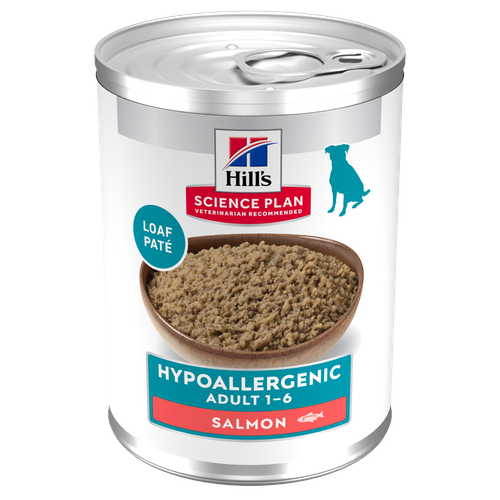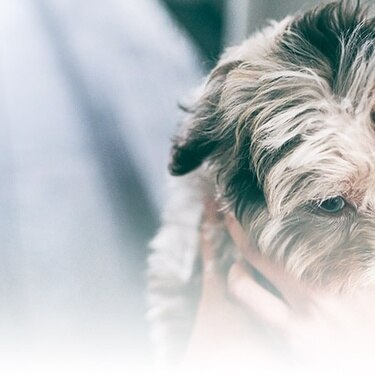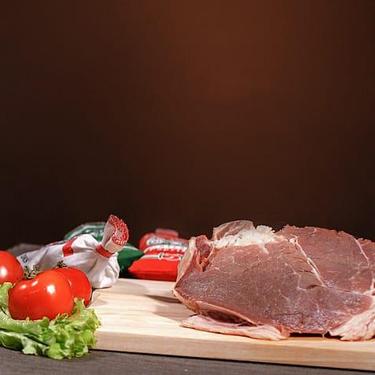
-
Find the right food for your petTake this quiz to see which food may be the best for your furry friend.Find the right food for your petTake this quiz to see which food may be the best for your furry friend.Featured products
 Puppy Food
Puppy FoodHill's Science Plan Puppy Multipack Wet Dog Food with Chicken & Beef are complete premium pet foods for growing puppies from weaning until 1 year old and for pregnant and nursing dogs. Your puppy will love these deliciously smooth and savoury minced loaves, formulated for balanced nutrition and overall health.
Shop Now Adult Wet Dog Food with Beef
Adult Wet Dog Food with BeefHill's Science Plan Adult Multipack Wet Dog Food with Chicken, Beef & Turkey are complete premium pet foods for adult dogs from 1 year. Your dog will love these deliciously smooth and savoury minced loaves, formulated for balanced nutrition and overall health.
Shop Now Mature Adult Dog Food
Mature Adult Dog FoodHill's Science Plan Mature Adult Multipack Wet Dog Food with Chicken & Beef are complete premium pet foods for mature adult dogs from 7 years. Your dog will love these deliciously smooth and savoury minced loaves, formulated to deliver the appropriate amount of energy to support the needs of adult dogs.
Shop NowFeatured products Light Adult Multipack Wet Cat Food with Chicken & Ocean Fish
Light Adult Multipack Wet Cat Food with Chicken & Ocean FishTender chicken chunks in gravy for cats, with L-carnitine and fewer calories for ideal weight management. Packed with high-quality protein, omega-6s, and vitamin E for shiny fur and healthy skin.
Shop Now Mature Adult Wet Cat Food with Chicken
Mature Adult Wet Cat Food with Chicken
Tender chicken chunks in gravy for mature adult cats. Made with easy-to-digest ingredients, high-quality protein for lean muscle maintenance and antioxidant vitamins C+E for optimal health.
Shop Now Adult Multipack Wet Cat Food with Beef, Ocean Fish & Chicken
Adult Multipack Wet Cat Food with Beef, Ocean Fish & ChickenTender chunks in gravy for cats, with high-quality protein to maintain lean muscle. With vitamin E and omega-3s & -6s for healthy skin and balanced minerals to support healthy vital organs.
Shop Now -
Dog
- Dog Tips & Articles
-
Health Category
- Weight
- Food & Environmental Sensitivities
- Urinary
- Digestive
- Joint
- Kidney
-
Life Stage
- Puppy Nutrition
- Adult Nutrition
- Senior Nutrition
Cat- Cat Tips & Articles
-
Health Category
- Weight
- Skin & Food Sensitivities
- Urinary
- Digestive
- Kidney
-
Life Stage
- Kitten Nutrition
- Adult Nutrition
Featured articles The Right Diet For Your Pet
The Right Diet For Your PetIn people, the right diet is very important. If you are eating the wrong way for your metabolism, activity level, age and lifestyle you could end up with health issues.
Read More The Incredible Science Behind Your Pet's Microbiome
The Incredible Science Behind Your Pet's MicrobiomeLearn what your pet's microbiome is, how it contributes to your pet's gut and overall health, and why nutrition is important in maintaining healthy microbiomes.
Read More Show some love with wet foods: a great choice for pets with health issues
Show some love with wet foods: a great choice for pets with health issuesShow some love with wet foods: a great choice for pets with health issues.
Read More -


In a world where we and our pets are often fighting the battle of the bulge, having the problem of keeping weight on might seem like a nice idea. But for some dog owners, helping their dog gain and maintain a healthy weight can be a real problem. If you are concerned that your dog is too thin and you struggle to keep their weight on, then this article is for you. Let’s have a look at what a healthy weight is, why your dog might struggle to keep weight on, and what you can do about it.
What is a healthy weight for your dog?
Before we embark on this topic, it’s really important to consider a worrying trend of recent years, which is people thinking that normal dogs are too thin. Because animals and people have become generally heavier in recent years, there is now a tendency for us to look at overweight animals and think they are normal or a healthy weight. This means that some people look at what we, as vets, would call a healthy, slim weight and think that they are too thin or even emaciated.
Ask your vet about Body Condition Score (BCS). This is a way we assess whether an animal is the right weight. In short, you should be able to feel your dog’s ribs and shoulder blades, and they should have an obvious waist when viewed from above. Your vet will be able to explain it and also tell you if your dog is actually underweight or not. If they’re not, then you can relax!


Tasty Tips
Why is my dog struggling to maintain a healthy weight and what can I do about it?
There are a number of reasons why your dog may have trouble keeping weight on. Let’s look at the common reasons and what you can do.
Exercise vs food intake. Dog types and breeds vary massively when it comes to their energy levels and exercise needs. Feeding guides on your dog’s food are aimed at the ‘average dog’ of that weight. This can vary by about 15% quite normally. It may be that you simply need to increase the amount of food you are feeding. You may find that your dog does really well on 3-4 meals a day instead of one or two.
Lifestage. In general, younger, unneutered dogs have higher energy requirements per kilo of bodyweight than older, neutered dogs. Again, you may just need to increase the amount you are feeding. Always make sure you are feeding a food that is right for the lifestage of your dog.
Stress and anxiety. These are quite common in dogs and can affect digestion as well as food intake. There are highly digestible foods with natural ingredients to reduce anxiety, which your vet may feel will help. You may find that speaking to a behavioural specialist will help, too. Addressing the cause of the anxiety is an essential step in these cases.
Energy density of food. There is a huge choice when it comes to dog foods and it can be overwhelming. Many foods these days are designed to be quite calorie controlled because of dogs being overweight. It may be that the food you are feeding is too low-calorie for your dog to eat enough to keep weight on. In this case, your vet can recommend a food that is lower-fibre and higher-calorie. This means your dog, even if they eat smaller volumes, will get more energy and nutrition and maintain their weight.
Parasites. It’s very unusual to get very heavy worm infestations these days, but it’s possible that this could be a cause of your dog failing to gain weight. Check with your vet whether your preventative healthcare is adequate for your dog’s lifestyle.
Disease and illness. Weight loss, or failure to maintain weight, are very common early signs of disease such as digestive issues, kidney, liver or heart problems, diabetes or cancer, to name a few. If your vet is happy your dog is on the right food and amounts, they may want to do blood and urine tests to rule out an underlying cause.
Failure to gain weight isn’t always a sign of big problems but if you have any doubts at all, speak to your vet and get a check up for your faithful companion. The sooner you get to the bottom of the problem, the better your chances of having a fully fit friend as soon as possible.
Reviewed by Dr. Hein Meyer, DVM, PhD, Dipl-ECVIM-CA


One of our staff authors prepared this article for you
Related products

Hill's Science Plan Hypoallergenic Adult Wet Dog Food with Salmon is a complete premium pet food for all adult dogs from 1 year. This savoury tinned loaf is specially formulated for dogs with delicate skin and stomachs. It features a single novel animal protein source and is grain-free.

Hill's Science Plan Adult Multipack Wet Dog Food with Chicken, Beef & Turkey are complete premium pet foods for adult dogs from 1 year. Your dog will love these deliciously smooth and savoury minced loaves, formulated for balanced nutrition and overall health.

Hill's Science Plan Puppy Multipack Wet Dog Food with Chicken & Beef are complete premium pet foods for growing puppies from weaning until 1 year old and for pregnant and nursing dogs. Your puppy will love these deliciously smooth and savoury minced loaves, formulated for balanced nutrition and overall health.

Hill's Science Plan Mature Adult Multipack Wet Dog Food with Chicken & Beef are complete premium pet foods for mature adult dogs from 7 years. Your dog will love these deliciously smooth and savoury minced loaves, formulated to deliver the appropriate amount of energy to support the needs of adult dogs.
Related articles

How, when and what to feed your new puppy is an important decision, learn more about the things to consider for feeding your puppy.

Many human foods are dangerous to dogs. Read about 5 of the worst toxic food offenders that can kill your dog - and how much it takes to hurt them.

Learn effective tips for feeding a dog that's a picky eater and ensure proper nutrition for a finicky eater. Discover tips for pet parents at Hill's Pet UK.

Learn about the potential health risks of a raw diet for dogs and why they aren't the best option for your pup or you.

Put your dog on a diet without them knowing
Our low calorie formula helps you control your dog's weight. It's packed with high-quality protein for building lean muscles, and made with purposeful ingredients for a flavourful, nutritious meal. Clinically proven antioxidants, Vitamin C+E, help promote a healthy immune system.
Put your dog on a diet without them knowing
Our low calorie formula helps you control your dog's weight. It's packed with high-quality protein for building lean muscles, and made with purposeful ingredients for a flavourful, nutritious meal. Clinically proven antioxidants, Vitamin C+E, help promote a healthy immune system.

